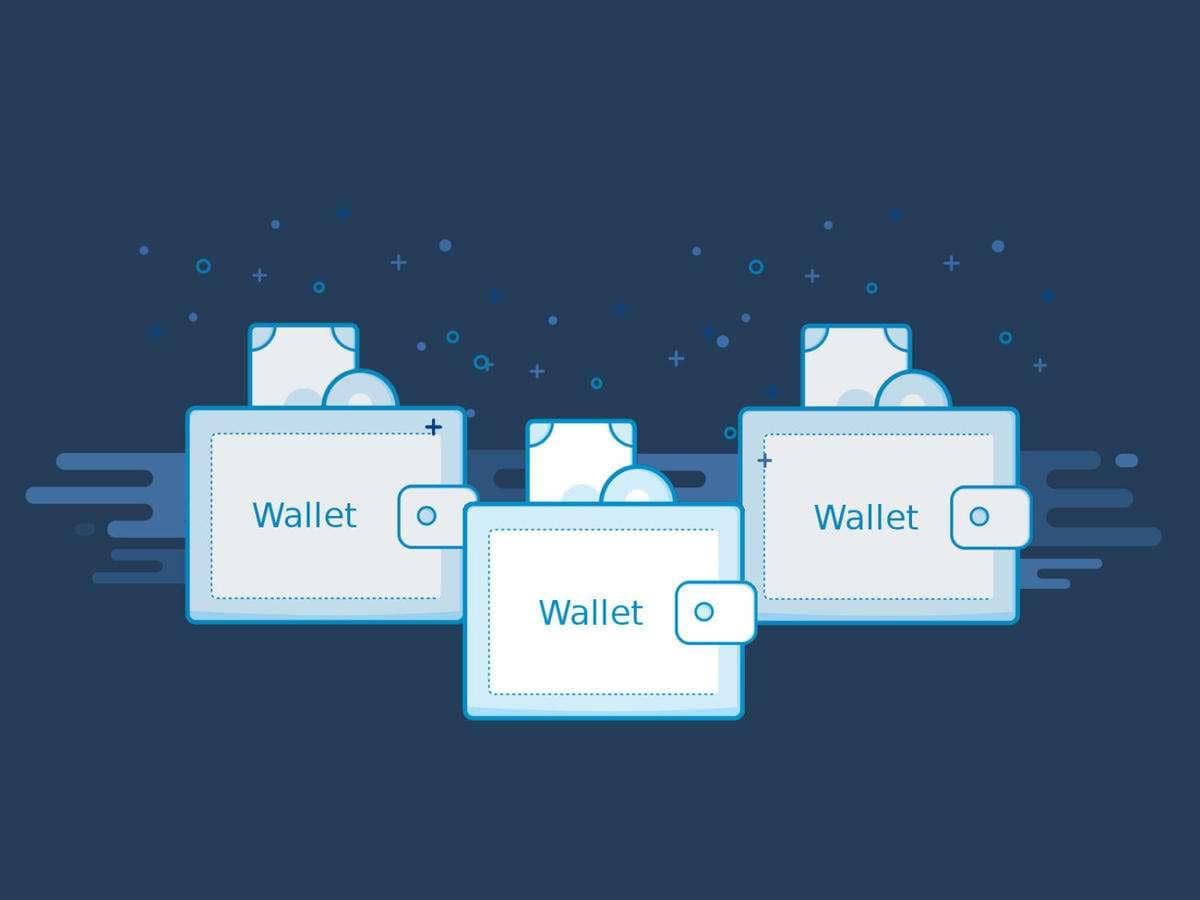Content
These routing systems, often referred to as “smart routers,” route each customer order to the specialist that quotes the best price in a particular options class. Other firms stated that they are evaluating smart-routing technology, but most believe that smart routing technology costs are prohibitive. Some firms asserted that exchange linkages may lessen the desirability of implementing smart routing technology. The Staff believes that exchanges and specialists should take steps to provide more execution quality information to order routing firms, including standardized measures of execution quality.

In summary, specialists that began paying for order flow in November 1999 were not quoting as aggressively as those specialists not paying for order flow. By June 2000, the difference in quote aggressiveness was smaller, but still present. A number of firms are actively considering whether or not to establish internalization programs as a way to “monetize” order flow. The risk of loss in online trading of stocks, options, futures, currencies, foreign equities, and fixed Income can be substantial. A stockbroker is a professional intermediary on stock or commodity markets who sells and buys assets in the interest of the client on the most favorable terms. The three types of brokerage are online, discount, and full-service brokerages.
73 Measuring quoting behavior by examining the percentage of quotes at the exchanges’ maximum allowable width is an alternative to dollar spreads for measuring quote aggressiveness. Higher percentages of quoted spreads on the maximum are consistent with less aggressive quoting. 72 Options priced below $20 represent between 72% and 97% of all options traded during the five weeks of the sample. For options of all price ranges, the comparable quoted spreads for August, November, June, and October are $0.50, $0.38, $0.52, and $0.45, respectively. 69 The effective spread is twice the difference between the trade price and the midpoint of the bid-ask spread at the time the trade report was received by OPRA.
A. Specialists’ Payment for Order Flow Arrangements
Two firms did not re-route any classes, one firm re-routed one class, and the fourth firm re-routed four classes. Spear Leeds, upon request from an order routing firm, will provide a monthly execution quality report similar to the daily report provided by the CBOE. The exchange-provided execution quality reports have several shortcomings that limit their effectiveness. All firms interviewed by the Staff indicated that they need better and additional information to make better-informed order routing decisions. Most importantly, the various reports do not contain consistent information, making it difficult for broker-dealers to compare execution quality among the exchanges. The reports also lack certain information important to an analysis of execution quality.
This rule requires brokers to disclose on a quarterly basis, starting in October 2001, the venues to which they route their options order flow for execution, and any financial inducements the brokers are receiving for that order flow. Thus, payment for order flow arrangements and other inducements will be more transparent to investors and, therefore, subject to greater competitive pressure than is currently the case. The conversion to decimal pricing also may result in narrower spreads in the options markets, and also may impact broker is payment system payment for order flow. As reflected in the chart below, the trend in quoted spreads suggest a decline in aggressive quoting that may be related to a concurrent growth of payment for order flow and other forms of internalization. Because of the entry of the ISE into intermarket competition during the period, however, it is difficult to attribute changes in quoted spreads conclusively to any particular factor. A national best bid or offer (“NBBO”) would facilitate the creation of uniform measures of execution quality.
Understanding Brokerage Fees
While some firms that accepted payment for order flow acknowledged that such payments influenced their order routing decisions, most firms denied that it had any influence on their order routing decisions. The Staff found that most of the firms that accept payment for order flow re-routed some of their customers’ options orders to specialists that agreed to pay for order flow and away from specialists that did not pay. In fact, the Staff found that four of the 19 firms reviewed that accept payment for order flow re-routed 75% or more of their customers’ options orders in at least 8 of the 12 classes reviewed by the Staff to specialists that paid them for order flow. Four other firms similarly re-routed 25% or more of their customers’ options orders in at least 8 of the 12 classes to specialists that paid them for order flow.

The logistics and supply chain industry has been deeply impacted and transformed over the past year due to the pandemic and surge in global consumer demand. To keep abreast of the changing environment and ensure improved efficiencies, brokers nationwide are recognizing the advantages of switching to an end-to-end digital payment process to pay for lumper fees. Below we discuss three main takeaways from ditching a paper-based payment system and switching to digital payments. In the insurance industry, a broker, unlike an agent, represents the interests of the customer and not the insurer.
Editing Commission Details
This could, if utilized by order routing firms in making routing decisions, lead to enhanced quality of execution for customer options orders. Since August 2000, the options exchanges have taken steps to formalize their reports on execution quality. The Amex, CBOE, Phlx, and PCX have started providing execution quality reports to their member firms. The ISE has indicated that it also intends to provide execution quality reports to its members.50 A summary of the various execution quality reports follows. In addition to making direct cash payments to broker-dealers in consideration for their retail options order flow, some specialists have entered into other non-cash arrangements with order routing firms.
CBA admits its mortgage broker payment system is ‘conflicted’ The New Daily https://t.co/SNekCccZaq
— ODD (@OddemocracyA) March 15, 2018
Agents/brokers must be licensed in the State in which they do business, annually complete training and pass a test on their knowledge of Medicare and health and prescription drug plans, and follow all Medicare marketing rules. Generally, agents/brokers receive an initial payment in the first year of the policy (or when there is an “unlike plan type” enrollment change) and half as much for years two and beyond if the member remains enrolled in the plan or make a “like plan type” enrollment change. As the specialists in the UK and Irish financial markets, we can guide you through both local market practices and regulations. A real estate broker searches for buyers and sellers of real estate, e.g., warehouses, offices, retail, as well as residential properties.
Ensuring payment channels security
Letco, Gateway Partners, and Botta Capital Management (“Botta”) begin to pay several broker-dealers for options order flow. As reflected in the chart below, effective spreads have remained generally constant after an initial decline following the advent of multiple-listing. Retail investors / private individuals – You can open an account in their name and have an indirect CREST connection via their retail bank or broker. A leasing broker is a specialist who is similar to a credit broker but in the field of leasing equipment.
CBA admits its mortgage broker payment system is ‘conflicted’ The New Daily https://t.co/2nzjOxcIuI Conflicted ? #auspol #qldpol
— Union Thug #VoteYes Socialist 🐀🐁🌹🌈💧♐️🇺🇦 (@MinhKular) March 15, 2018
A few broker-dealers continue to rely on customer complaints to measure the quality of executions received from a particular exchange, and do little, if any, analysis of execution quality. In addition, specialist firms have requested that certain exchanges create execution quality information that they can provide to order routing firms. As the options marketplace becomes more competitive, specialists and exchanges are seeking ways to differentiate themselves as a destination for order flow and view providing execution quality information as a valuable means of marketing themselves. As a result, the Staff believes the exchange plans could have the unintended consequence of enabling the few large, multi-exchange specialists to use these new pools of money to increase market share at their posts on other exchanges. That specialist has little incentive, however, to use the money available to attract more order flow to the primary exchange in that class, because many of the customer orders in that class already are routed to the primary exchange without the need for payments.
A. Background: Multiple-Listing and Trading Increases Competition and Payment for Order Flow is Initiated
It is useful to address professional participants on a stock exchange, such as to brokers. Message brokers are software modules within messaging middleware or message-oriented middleware solutions. This type of middleware provides developers with a standardized means of handling the flow of data between an application’s components so that they can focus on its core logic. It can serve as a distributed communications layer that allows applications spanning multiple platforms to communicate internally. A message broker is software that enables applications, systems, and services to communicate with each other and exchange information.
- The idea behind this service is based on the best current practices and an obvious market need.
- Some payments fall significantly outside that range, with several between $1.00 and $3.00 per contract and one payment of $13.00 per contract.
- According to Euronext, European authorities have regulated payment for order flow, and the practice is allowed in a number of national jurisdictions across Europe.
- A full-service brokerage provides a wide range of professional services to customers, such as tax tips, investment advisory, equity researching, etc.
- As the table illustrates, as of the end of the September 2000 payment cycle, both the CBOE and the PCX had collected a 40¢ per contract fee from their specialists and market makers and were holding money that specialists had not committed to distributing.
The CBOE, Amex and PCX impose a fee of 40¢ per contract on market makers and specialists when executing transactions with non-market makers. The ISE imposes a 75¢ per contract fee on all transactions with customer orders. The Phlx imposes a fee of $1.00 per contract, but only on transactions in the top 120 options classes as measured by overall volume. Prior to the widespread multiple-listing of options, broker-dealers routed their customers options orders to whichever exchange traded the option.
Functions of a Brokerage
Two of the firms stated that although payment for order flow is not necessarily inconsistent with providing best execution, they refrain from accepting payments to avoid even the appearance of a conflict of interest. As of November 30, 2000, some order routing firms were not accepting payment for their order flow from specialists. Most of these firms stated that they are continuing to evaluate the appropriateness of receiving payment for order flow. As order routing firms decide to accept payment, the specialists may retroactively pay some of those firms from the surpluses. In fact, one order routing firm that maintains a policy of not accepting payment for order flow informed the Staff that it had not yet decided whether to accept payment for order flow from the CBOE plan, but that monies from the CBOE plan were being held in escrow pending its decision. According to the CBOE, no money is being held in escrow for any firm, but it is possible that the specialists have informed some firms that they will track the firms’ order flow and maintain surpluses in their accounts that could be used to make retroactive payments to these firms.

The module includes a well-thought-out lead distribution system, user-friendly interfaces, sales department performance management system, client history archive and much more. In addition, the UpTrader team has done a lot of preparations for the launch of big and even sensational services next year. The holidays are the perfect https://xcritical.com/ time to tell you how much we appreciate you as our very important client. 77 For all options the comparable realized spreads were $0.19, $0.16, $0.21 $0.16 and $0.17. 36 In settling the Commission’s administrative proceeding, the Commission required the exchanges to improve their surveillance for anti-competitive practices.
Also, for regions, where it is difficult to obtain a payment solution due to state restrictions and severe regulations, it may be a good idea to establish an additional payment channel, which can work as an exchanger. For example, the connection of crypto payments can be a good way out for brokerages, which are limited in their choice of options for fiat payments due to relations with regulators. However, when choosing a crypto service, one should be very careful and pay attention both to the technical state of the proposed solution and the commission rate. Whichever solution you resort to, you need to comply with all the security measures of each payment channel, as we’ll talk about below. The idea behind this service is based on the best current practices and an obvious market need. At the moment, there is no other CRM for Forex brokers on the market that integrates the CRM with your website without a team of developers setting it up.
What is a Payment Processing Agent?
During the period of November 1999 to September 2000, options specialists paid over $33 million to order routing firms to induce these order routing firms to route their customer orders to them. PayPal is a convenient electronic payment system to use with the Forex brokers. Because all payments are instant, you can use your credit card without exposing it to anyone except PayPal itself, and there is sufficient number of various brokers that accept PayPal for funding purposes. Unfortunately, PayPal does not allow residents of many countries to accept PayPal payments, making its use pointless for the FX traders based in such countries. Below is a link to a file containing the amounts that companies pay independent agents/brokers to sell their Medicare drug and health plans.
For instance, an agent may wish to focus solely on software-as-a-service technology providers. This enables them to become knowledgeable on SaaS companies and their payment processing challenges, whereas focusing on multiple industries at the same time makes it a lot more difficult to specialize in one or two in particular. A payment processing agent is also known as a credit card processing agent, merchant services reseller, or merchant services agent. Agents work for a payment processing provider or a larger ISO to develop business by selling payment processing product to merchants, thereby benefiting their own (and the provider/ISO’s) bottom-line. If a travel agent or source is attached to a reservation in the commission payment process, the agent/source remains attached to the reservation until it is detached by using the Detach feature, or until a different agent or source is attached to the reservation. If both a travel agent and a source are attached to a reservation, detaching one profile will not automatically detach the other.
The revenue generated from payment for order flow and internalization have the potential, as seen in the equity markets, to be partly passed on to investors in the form of reduced costs. To date, however, few firms are passing along the benefits of payment for options order flow to their customers in the form of either reduced commissions or rebates. Specifically, in the 12 classes reviewed by the Staff, four firms re-routed most of their customers’ orders to specialists that paid them for order flow .

